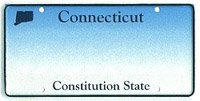Towards Voluntaryism (Part 29)
3.11.1. Citizen's Arrest Laws I: Alabama to Georgia
Towards Voluntaryism (Part 29)
Citizen's Arrest Laws I: Alabama to Georgia
The following presents the most directly relevant laws for performing a citizen's arrest in the states of Alabama, Arizona, Arkansas, California, Colorado, Connecticut, Delaware, Florida and Georgia. The provided information deals with the strictures, guidelines, limitations and laws governing the actual execution of a citizen's arrest. Further relevant information is to be viewed in the full context of the law, typically hyperlinked at the beginning of each section.
This does not provide any guidance as to which laws should be used to justify initiating a citizen's arrest as that is context dependent.
As this is to serve primarily as a reference, commentary will be omitted. The following may become outdated at any time, please reference your local state laws personally before considering any action based on the information provided. It came to my attention during the compilation of the following that some additional references regarding judicial precedence etc. are hidden behind pay walls or registration requirements or have been removed from the internet. If for some reason the hyperlinks do not work, please use a search engine to find the exact wording as provided. I am not a legal professional, this is not to be considered legal advice.
All information provided is to be considered for educational purposes and in keeping with fair use laws.
1. Alabama
2013 Code of Alabama Title 15 - CRIMINAL PROCEDURE. Chapter 9 - FUGITIVES FROM JUSTICE, EXTRADITION AND DETAINERS. Section 15-9-41 - Arrest without warrant - When authorized; persons authorized to make arrest; appearance of accused before judge.
Universal Citation: AL Code § 15-9-41 (2013)
Section 15-9-41
Arrest without warrant - When authorized; persons authorized to make arrest; appearance of accused before judge.
The arrest of a person may be lawfully made also by an officer or a private citizen without a warrant upon reasonable information that the accused stands charged with a crime punishable by death or life imprisonment in the courts of another state. When so arrested, the accused must be taken before a district or circuit court judge with all practicable speed and complaint must be made against him under oath setting forth the ground for the arrest as in Section 15-9-40, and thereafter his answer shall be heard as if he had been arrested on a warrant.
(Acts 1931, No. 482, p. 559; Code 1940, T. 15, §61.)
Code of Alabama - 2013 Code of Alabama Title 15 - CRIMINAL PROCEDURE. Chapter 10 - ARRESTS. Section 15-10-7 - Arrests by private persons.
(a) A private person may arrest another for any public offense:
(1) Committed in his presence;
(2) Where a felony has been committed, though not in his presence, by the person arrested; or
(3) Where a felony has been committed and he has reasonable cause to believe that the person arrested committed it.
(b) An arrest for felony may be made by a private person on any day and at any time.
(c) A private person must, at the time of the arrest, inform the person to be arrested of the cause thereof, except when such person is in the actual commission of an offense, or arrested on pursuit.
(d) If he is refused admittance, after notice of his intention, and (d) the person to be arrested has committed a felony, he may break open an outer or inner door or window of a dwelling house.
(e) It is the duty of any private person, having arrested another (e) for the commission of any public offense, to take him without unnecessary delay before a judge or magistrate, or to deliver him to some one of the officers specified in Section 15-10-1 , who must forthwith take him before a judge or magistrate.
(Code 1852, §§449-452; Code 1867, §§3998-4001; Code 1876, §§4668-4671; Code 1886, §§4266-4268; Code 1896, §§5215-5217; Code 1907, §§6273-6275; Code 1923, §§3267-3269; Code 1940, T. 15, §§158-160.)
Code of Alabama - Title 15 - CRIMINAL PROCEDURE. Chapter 10 - ARRESTS. Section 15-10-1 - Officers authorized to make arrests.
Universal Citation: AL Code § 15-10-1 (2013)
Section 15-10-1
Officers authorized to make arrests.
An arrest may be made, under a warrant or without a warrant, by any sheriff or other officer acting as sheriff or his deputy, or by any constable, acting within their respective counties, or by any marshal, deputy marshal or policeman of any incorporated city or town within the limits of the county.
(Code 1852, §434; Code 1867, §3983; Code 1876, §4653; Code 1886, §4260; Code 1896, §5209; Code 1907, §6267; Code 1923, §3261; Code 1940, T. 15, §152.)
2. Alaska
Alaska Statutes Title 12. Code of Criminal Procedure § 12.25.030. Grounds for arrest by private person or peace officer without warrant
(a) A private person or a peace officer without a warrant may arrest a person
(1) for a crime committed or attempted in the presence of the person making the arrest;
(2) when the person has committed a felony, although not in the presence of the person making the arrest;
(3) when a felony has in fact been committed, and the person making the arrest has reasonable cause for believing the person to have committed it.
Further detailed information (.pdf): CITIZEN’S ARREST OR POLICE ARREST? DEFINING THE SCOPE OF ALASKA’S DELEGATED CITIZEN’S ARREST DOCTRINE 23 pages.
3. Arizona
13-3884. Arrest by private person
A private person may make an arrest:
When the person to be arrested has in his presence committed a misdemeanor amounting to a breach of the peace, or a felony.
When a felony has been in fact committed and he has reasonable ground to believe that the person to be arrested has committed it.
4. Arkansas
2010 Arkansas Code Title 16 - Practice, Procedure, And Courts Subtitle 6 - Criminal Procedure Generally Chapter 81 - Arrest Subchapter 1 - General Provisions § 16-81-106 - Authority to arrest.
16-81-106. Authority to arrest.
(a) An arrest may be made by a certified law enforcement officer or by a private person.
(b) A certified law enforcement officer may make an arrest:
(1) In obedience to a warrant of arrest delivered to him or her; and
(2) (A) Without a warrant, where a public offense is committed in his or her presence or where he or she has reasonable grounds for believing that the person arrested has committed a felony.
(B) In addition to any other warrantless arrest authority granted by law or court rule, a certified law enforcement officer may arrest a person for a misdemeanor without a warrant if the officer has probable cause to believe that the person has committed battery upon another person, the officer finds evidence of bodily harm, and the officer reasonably believes that there is danger of violence unless the person alleged to have committed the battery is arrested without delay.
...
(4) Any law enforcement agency exercising statewide arrest powers under this section must have a written policy on file regulating the actions of its employees relevant to law enforcement activities outside its jurisdiction.
(d) A private person may make an arrest where he or she has reasonable grounds for believing that the person arrested has committed a felony.
(e) A magistrate or any judge may orally order a certified law enforcement officer or private person to arrest anyone committing a public offense in the magistrate's or judge's presence, which order shall authorize the arrest.
...
Arkansas Judiciary - Rule 4.1. Authority to Arrest Without Warrant
...
(b) A private person may make an arrest where he has reasonable grounds for believing that the person arrested has committed a felony.
(c) An arrest shall not be deemed to have been made on insufficient cause hereunder solely on the ground that the officer or private citizen is unable to determine the particular offense which may have been committed.
...
(e) A person arrested without a warrant shall not be held in custody unless a judicial officer determines, from affidavit, recorded testimony, or other information, that there is reasonable cause to believe that the person has committed an offense. Such reasonable cause determination shall be made promptly, but in no event longer than forty-eight (48) hours from the time of arrest, unless the prosecuting attorney demonstrates that a bona fide emergency or other extraordinary circumstance justifies a delay longer than forty-eight (48) hours. Such reasonable cause determination may be made at the first appearance of the arrested person pursuant to Rule 8.1.
Reporter's Notes, 2001. Concerning subsection (a) (iv), see Ark. Code Ann. §16-81-113 (a)(1), as amended by Act 1421 of 2001. Subsection (a) (v) is intended to incorporate current and future statutes authorizing an arrest without a warrant. Examples of such statutory authority include Ark. Code. Ann. § 5-4-309 (warrantless arrest for violation of probation); Ark. Code. Ann. § 5-36-116 (warrantless arrest for shoplifting); Ark. Code. Ann. § 5-53-134 (warrantless arrest for violation of protective order); Ark. Code Ann. § 16-81-114 (warrantless arrest for gas theft); and Ark. Code. Ann. § 16-93-705 (warrantless arrest for violation of parole).
5. California
Penal Code - PEN PART 2. OF CRIMINAL PROCEDURE [681 - 1620] ( Part 2 enacted 1872. )TITLE 3. ADDITIONAL PROVISIONS REGARDING CRIMINAL PROCEDURE [777 - 883] ( Heading of Title 3 amended by Stats. 1951, Ch. 1674. CHAPTER 5. Arrest, by Whom and How Made [833 - 851.92] (Chapter 5 enacted 1872. )
A private person may arrest another:
For a public offense committed or attempted in his presence. (A Public Offense is a felony, misdemeanor or infraction. (PC Sec. 16).)
When the person arrested has committed a felony, although not in his presence.
When a felony has been in fact committed, and he has reasonable cause for believing the person arrested to have committed it.
(Enacted 1872.)
6. Colorado
16-3-201. Arrest by a private person
A person who is not a peace officer may arrest another person when any crime has been or is being committed by the arrested person in the presence of the person making the arrest.
Colorado Revised Statutes Title 16-3-201. “Arrest by a Private Person.”
A person who is not a peace officer may arrest another person when any crime has been or is being committed by the arrested person in the presence of the person making the arrest.
Additional references:
A private citizen may arrest for any crime committed in his presence. Schiffner v. People, 173 Colo. 123, 476 P.2d 756 (1970).
Officer outside of jurisdiction arrests with authority of private citizen. A peace officer acting outside the territorial limits of his jurisdiction does not have any less authority to arrest than does a person who is a private citizen. People v. Wolf, 635 P.2d 213 (Colo. 1981).
When "in presence" requirement met. The "in presence" requirement of this section is met if the arrestor observes acts which are in themselves sufficiently indicative of a crime in the course of commission. People v. Olguin, 187 Colo. 34, 528 P.2d 234 (1974).
7. Connecticut
2011 Connecticut Code Title 53a Penal Code Chapter 951 Penal Code: Statutory Construction; Principles of Criminal Liability Sec. 53a-22. Use of physical force in making arrest or preventing escape.
(f) A private person acting on his or her own account is justified in using reasonable physical force upon another person when and to the extent that he or she reasonably believes such to be necessary to effect an arrest or to prevent the escape from custody of an arrested person whom he or she reasonably believes to have committed an offense and who in fact has committed such offense; but he or she is not justified in using deadly physical force in such circumstances, except in defense of person as prescribed in section 53a-19.
...
Subsec. (f): Does not require person making the arrest to have been present at the time the felony was committed for defense of citizen's arrest to apply. 63 CA 228.
8. Delaware
TITLE 11 Crimes and Criminal Procedure Criminal Procedure Generally CHAPTER 25. EXTRADITION AND DETAINERS Subchapter I. Extradition; Uniform Criminal Extradition Law
§ 2514 Arrest without warrant.
The arrest of a person may be lawfully made by any peace officer or a private person, without a warrant, upon reasonable information that the accused stands charged in the courts of a state with a crime punishable by death or imprisonment for a term exceeding 1 year, but when so arrested the accused shall be taken before a judge or justice of the peace with all practicable speed and complaint shall be made against the accused under oath setting forth the ground for the arrest as in § 2513 of this title, and thereafter the accused's answer shall be heard as if the accused had been arrested on a warrant.
41 Del. Laws, c. 213, § 14; 11 Del. C. 1953, § 2514; 70 Del. Laws, c. 186, § 1.;
Opinion of the Attorney General's Office
In that opinion, the Delaware Attorney General’s office said, “We conclude: 1. Private security guards only have the same common law power of arrests as private citizens, 2) security guards can detain individuals pursuant to 11 Del. C 840, 3) some hot pursuit may be permissible under the common law but it is not advisable and 4) their [private security guards] investigation and interrogations are limited by 24 Del. C. 1301. There is no statute in Delaware regulating the arrest powers of private citizens.”
Attorney General Oberly further stated, “As a private citizen, the security guard can make arrests for breaches of the peace or threats of such breaches. A breach of the peace is defined as, a public offense done by violence, or one causing or likely to cause an immediate disturbance of public order. The necessity for prompt on the spot action in suppressing and preventing disturbances of the public peace justifies arrest without warrant in cases involving a breach of the peace.”
“Examples of breach of the peace include, 1) an affray or an assault, 2) disorderly conduct. 3) a refusal to depart premises and 4) swearing at another. At common law the arrest power included the power to detain the individual.
In 1964 in the case of State vs. Hodgson, Del. Super, 200 A.2d. 567, the court stated: “at common law a private citizen could make an arrest without a warrant for an offense committed in his presence which amounted to a breach of a peace…or which threatened a breach of a peace”
See also: Opinion No. 03-018 Licensed Security Officers and Citizens Arrests (.pdf)
9. Florida
2017 Florida Statutes - Title XLVII Criminal Procedure and Corrections - Interstate Cooperation Chapter 941
941.14 Arrest without a warrant.—The arrest of a person may be lawfully made also by any peace officer or a private person, without a warrant upon reasonable information that the accused stands charged in the courts of a state with a crime punishable by death or imprisonment for a term exceeding 1 year, but when so arrested the accused must be taken before a judge with all practicable speed and complaint must be made against the accused under oath setting forth the ground for the arrest as in the preceding section; and thereafter his or her answer shall be heard as if the accused had been arrested on a warrant.
History.—s. 14, ch. 20460, 1941; s. 1605, ch. 97-102; s. 45, ch. 2004-11.
10. Georgia
2010 Georgia Code TITLE 17 - CRIMINAL PROCEDURE CHAPTER 4 - ARREST OF PERSONS ARTICLE 4 - ARREST BY PRIVATE PERSONS § 17-4-60 - Grounds for arrest
A private person may arrest an offender if the offense is committed in his presence or within his immediate knowledge. If the offense is a felony and the offender is escaping or attempting to escape, a private person may arrest him upon reasonable and probable grounds of suspicion.
§ 17-4-61. Taking of persons arrested before judicial officer or to peace officer; duty and liability of peace officer taking custody
(a) A private person who makes an arrest pursuant to Code Section 17-4-60 shall, without any unnecessary delay, take the person arrested before a judicial officer, as provided in Code Section 17-4-62, or deliver the person and all effects removed from him to a peace officer of this state.
(b) A peace officer who takes custody of a person arrested by a private person shall immediately proceed in accordance with Code Section 17-4-62.
(c) A peace officer who in good faith and within the scope of his authority takes custody of a person arrested by a private person pursuant to this Code section shall not be liable at law for false arrest or false imprisonment arising out of the arrest.
§ 17-4-62. Taking of persons arrested before judicial officer within 48 hours of arrest
In every case of an arrest without a warrant, the person arresting shall, without delay, convey the offender before the most convenient judicial officer authorized to receive an affidavit and issue a warrant as provided for in Code Section 17-4-40. No such imprisonment shall be legal beyond a reasonable time allowed for this purpose; and any person who is not brought before such judicial officer within 48 hours of arrest shall be released.
....
Next [Towards Voluntaryism (Part 30) - Citizen's Arrest Laws II: Hawaii to Maryland]

.
.
.
Shot with a golden arrow,
Cupid Zero
.
I consider requests to write on a topic of your choice.
.
Don't forget to upvote, follow and resteem! Comments always appreciated.
.
.
.
.
.
.
.
.
.
.
.
.
.
If you aren't on Steemit, please consider supporting my work with a gift of:
Bitcoin: 1fruAGn9JcKqJJscreUpS2XurfLzksBe8
Litecoin: LQf19ExcdSFDjYj6NktRgzBnJ7NScVgikA
Ethereum: 0xEe3005b1D2D8963a85E1Ca4ff511acCd98A1E29D
All license plate images from Spindy's Classics & Collectibles










